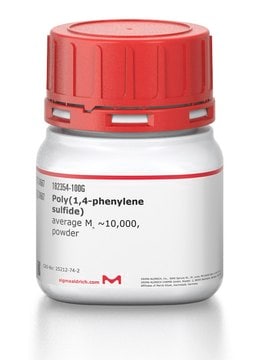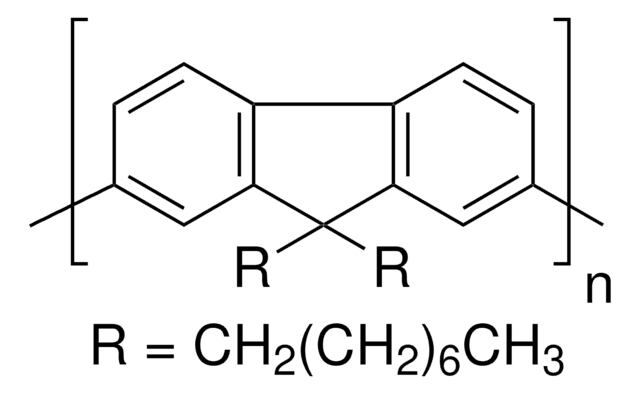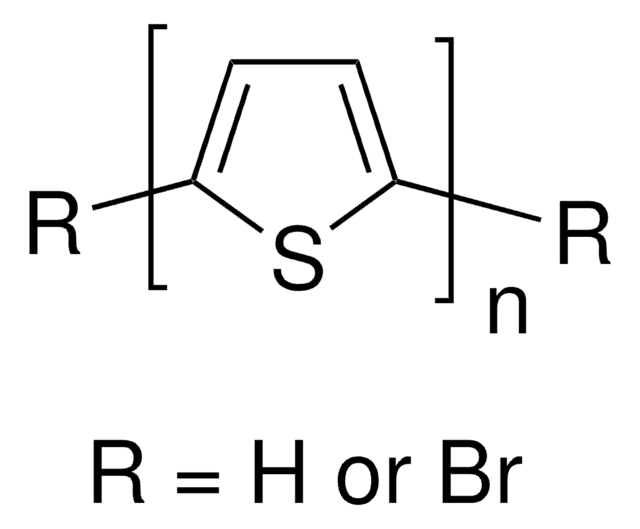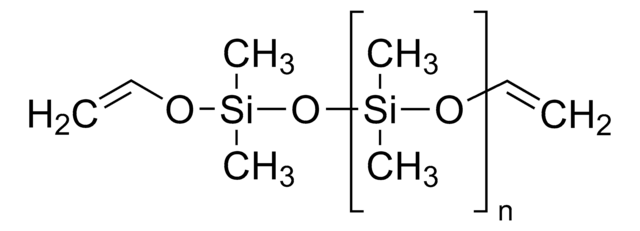Wszystkie zdjęcia(1)
Key Documents
937274
Poly(propylene sulfide)

average Mw 15000
Zaloguj sięWyświetlanie cen organizacyjnych i kontraktowych
About This Item
Polecane produkty
agency
suitable for controlled release
Poziom jakości
Postać
viscous liquid
masa cząsteczkowa
average Mw 15000
kolor
colorless
Zastosowanie
advanced drug delivery (tissue engineering, medical devices)
temp. przechowywania
2-8°C
Opis ogólny
Poly(propylene sulfide) (PPS) is a thermoplastic polymer that has shown potential for use in various biomedical applications due to its biocompatibility, biodegradability, and tunable mechanical and chemical properties.
Zastosowanie
One promising application of PPS is in drug delivery. PPS nanoparticles can be synthesized and loaded with drugs, providing sustained release and targeted delivery to specific tissues or cells. PPS also has good stability in biological environments, which is important for maintaining drug efficacy during storage and delivery.
PPS has also been explored as a material for tissue engineering. Its biocompatibility and ability to be tailored for specific mechanical and chemical properties make it a potentially useful scaffold material for various tissue types, including bone and cartilage. PPS has also been shown to support cell attachment and growth in vitro.
In addition to drug delivery and tissue engineering, PPS has also been investigated for use in medical devices such as catheters and sutures. Its chemical resistance and low toxicity make it a potential alternative to traditional materials like silicone and nylon. Overall, PPS has shown promise for various biomedical applications, and ongoing research is exploring its potential in areas such as wound healing, cancer therapy, and regenerative medicine.
PPS has also been explored as a material for tissue engineering. Its biocompatibility and ability to be tailored for specific mechanical and chemical properties make it a potentially useful scaffold material for various tissue types, including bone and cartilage. PPS has also been shown to support cell attachment and growth in vitro.
In addition to drug delivery and tissue engineering, PPS has also been investigated for use in medical devices such as catheters and sutures. Its chemical resistance and low toxicity make it a potential alternative to traditional materials like silicone and nylon. Overall, PPS has shown promise for various biomedical applications, and ongoing research is exploring its potential in areas such as wound healing, cancer therapy, and regenerative medicine.
Cechy i korzyści
- Biocompatible
- Biodegradable
- Tunable mechanical and chemical properties
- Ideal for sustained release and targeted delivery
- Chemically resisitant and low toxicity
This page may contain text that has been machine translated.
Kod klasy składowania
10 - Combustible liquids
Klasa zagrożenia wodnego (WGK)
WGK 3
Temperatura zapłonu (°F)
Not applicable
Temperatura zapłonu (°C)
Not applicable
Wybierz jedną z najnowszych wersji:
Certyfikaty analizy (CoA)
Lot/Batch Number
Przepraszamy, ale COA dla tego produktu nie jest aktualnie dostępny online.
Proszę o kontakt, jeśli potrzebna jest pomoc Obsługa Klienta
Masz już ten produkt?
Dokumenty związane z niedawno zakupionymi produktami zostały zamieszczone w Bibliotece dokumentów.
Nasz zespół naukowców ma doświadczenie we wszystkich obszarach badań, w tym w naukach przyrodniczych, materiałoznawstwie, syntezie chemicznej, chromatografii, analityce i wielu innych dziedzinach.
Skontaktuj się z zespołem ds. pomocy technicznej







